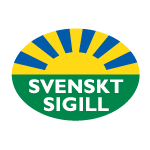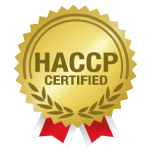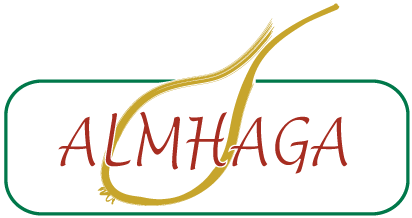Certifications
For producers of food, there are requirements to obtain certification to obtain food.
The certification covers quality assurance and ensuring food safety of different areas such as health, environment and working conditions.
You can read more about what the different certifications based. Regarding Almhaga Vegetables AB, we have a big interest in developing us and to constantly do our utmost to improve our processes both on the field and in the packing plant.
In cooperation with SMAK (certification organization), we have certified us for “Import and packaging of organic onions.”
Green production
 This type of certification can be done by taste. It includes two levels of regulations. The basic level is based on Swedish legislation in the areas of food safety and animal welfare. The higher the level, Seal, drive development towards sustainability in food safety, animal welfare and the environment.
This type of certification can be done by taste. It includes two levels of regulations. The basic level is based on Swedish legislation in the areas of food safety and animal welfare. The higher the level, Seal, drive development towards sustainability in food safety, animal welfare and the environment.
Almhaga are certified to the higher level.
Swedish Seal is a brand that helps traders and consumers to choose products that were produced with greater respect for animals and nature. Better production quality, simply. The label guarantees that the production is based on standard IP Seal’s extensive production criteria (rules) that will ensure high food quality, animal welfare and increasing environmental concerns. Compliance with the standard is checked by an independent party, a certification body, the periodic inspections, so-called audits.
Farmers and animal breeders take active responsibility for the future, manages and protects the core values that the Swedish model has long been established and growing methods are developed based on science and a sustainable approach to resources. Accurate documentation, identification of critical factors, combined with preventive measures and full traceability are the basis for a quality assured production.
For raw material means the Swedish Seal marking a step from anonymous product to a profiled quality product from controlled cultivation or breeding. Simply a way to highlight the added value that the responsible production contributes to, right up to the trade and consumer.
Source: www.svensktsigill.se
HACCP
 HACCP is a standard working method that describes how to systematically chart, assessing and controlling hazards in food production with a view to food must be safe for the consumer. It may be microbiological, chemical, allergenic and physical hazards. The method has been developed within the FAO.
HACCP is a standard working method that describes how to systematically chart, assessing and controlling hazards in food production with a view to food must be safe for the consumer. It may be microbiological, chemical, allergenic and physical hazards. The method has been developed within the FAO.
Within the EU, it is required that the companies that handle food should apply the HACCP self-monitoring also based on good hygienic practices (GHP).
An important concept in the HACCP critical control point. It is a function (or management) process in which a control measure can be applied and is needed to prevent or eliminate the food borne danger or reduce it to an acceptable level. Along with the concept belongs Critical limit: Distinguishes acceptable from the unacceptable, such as a low temperature.

